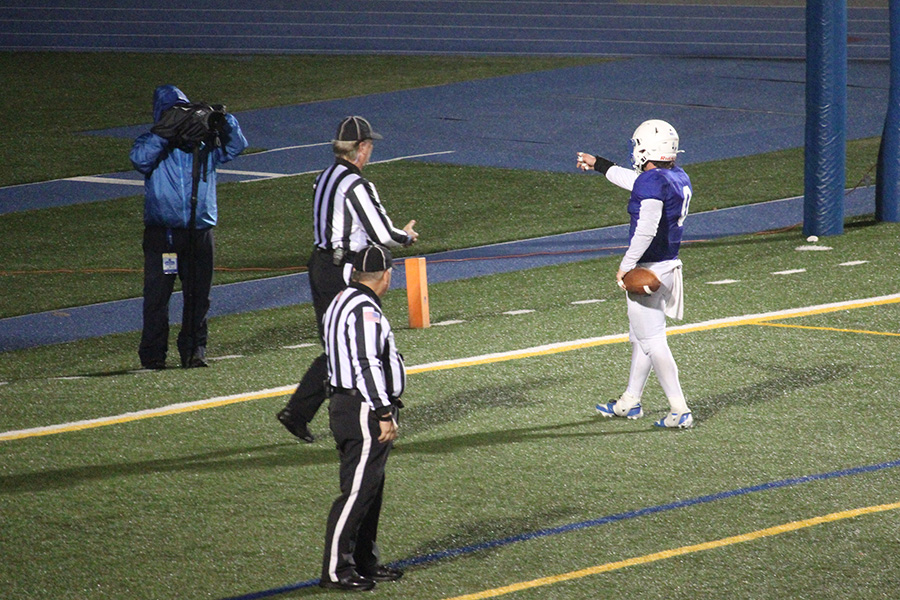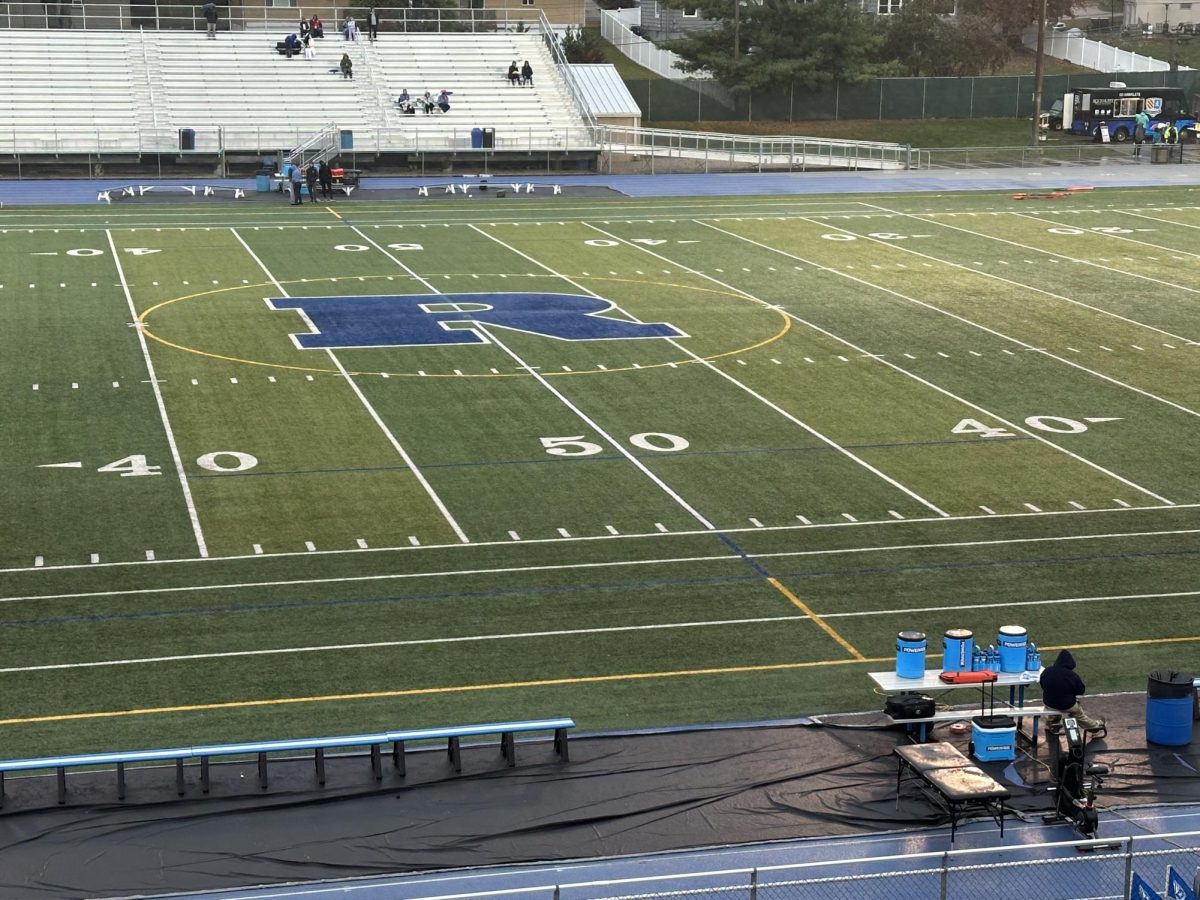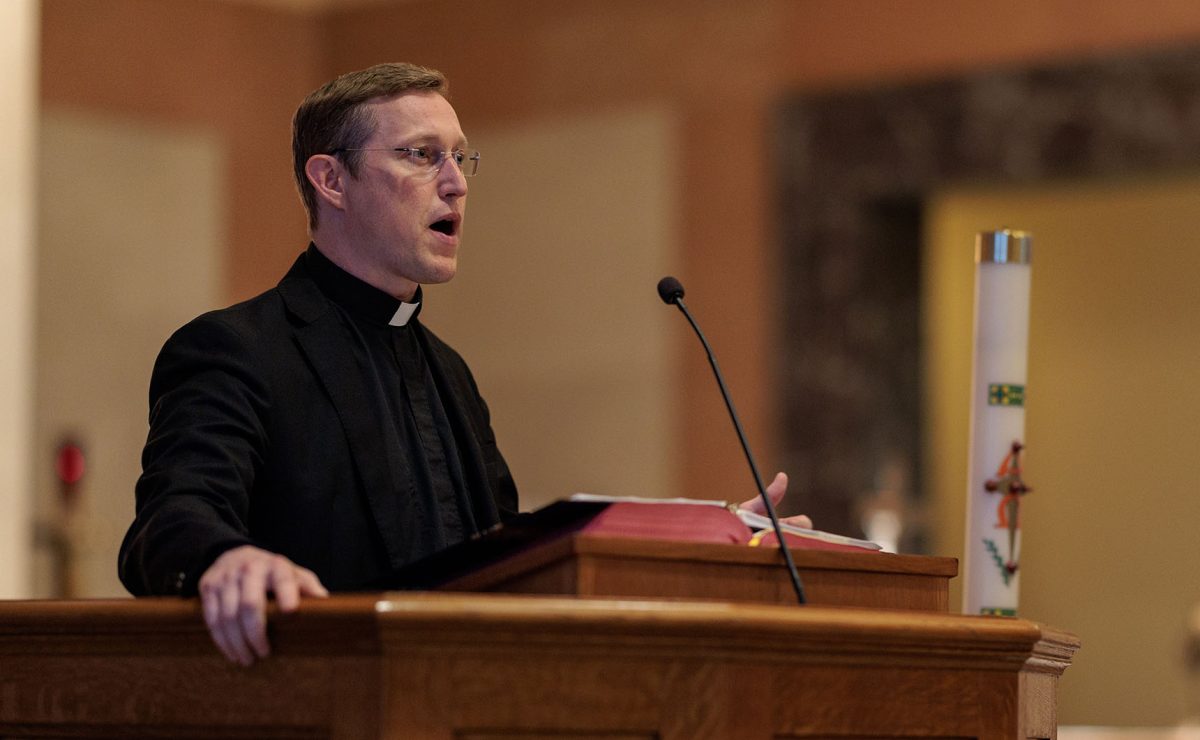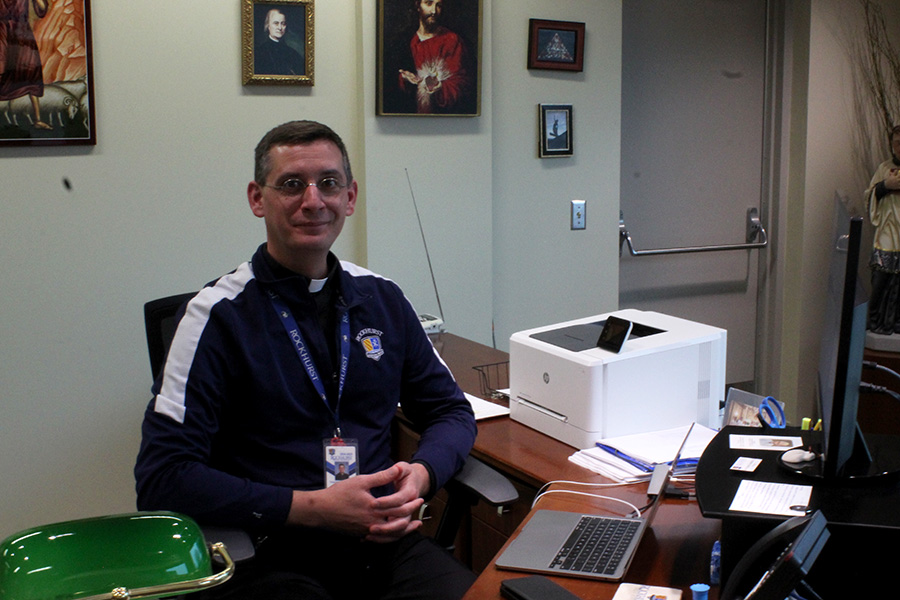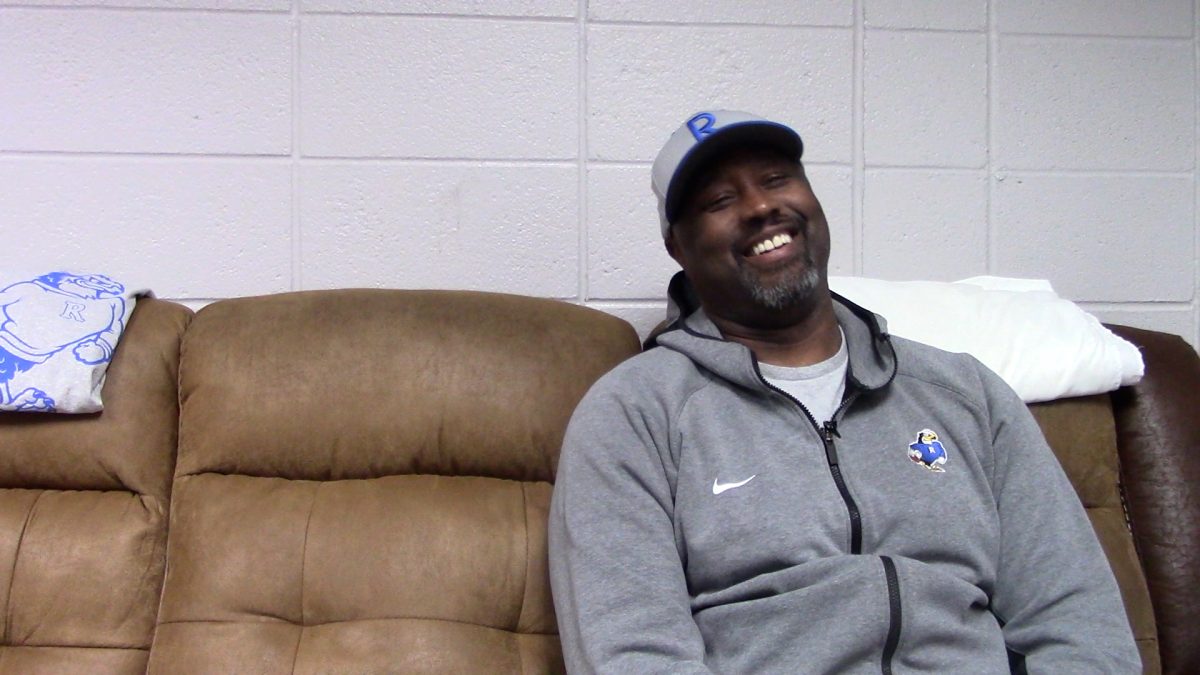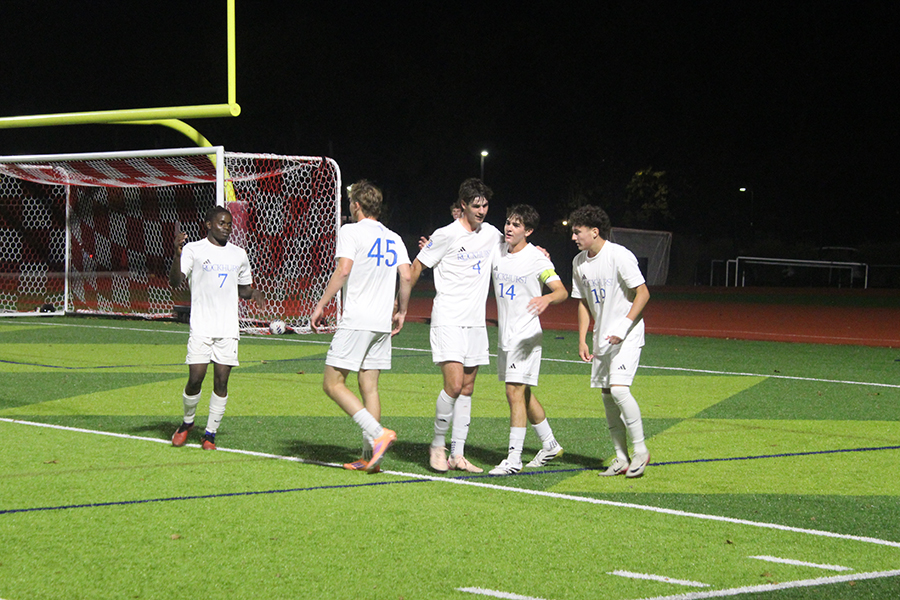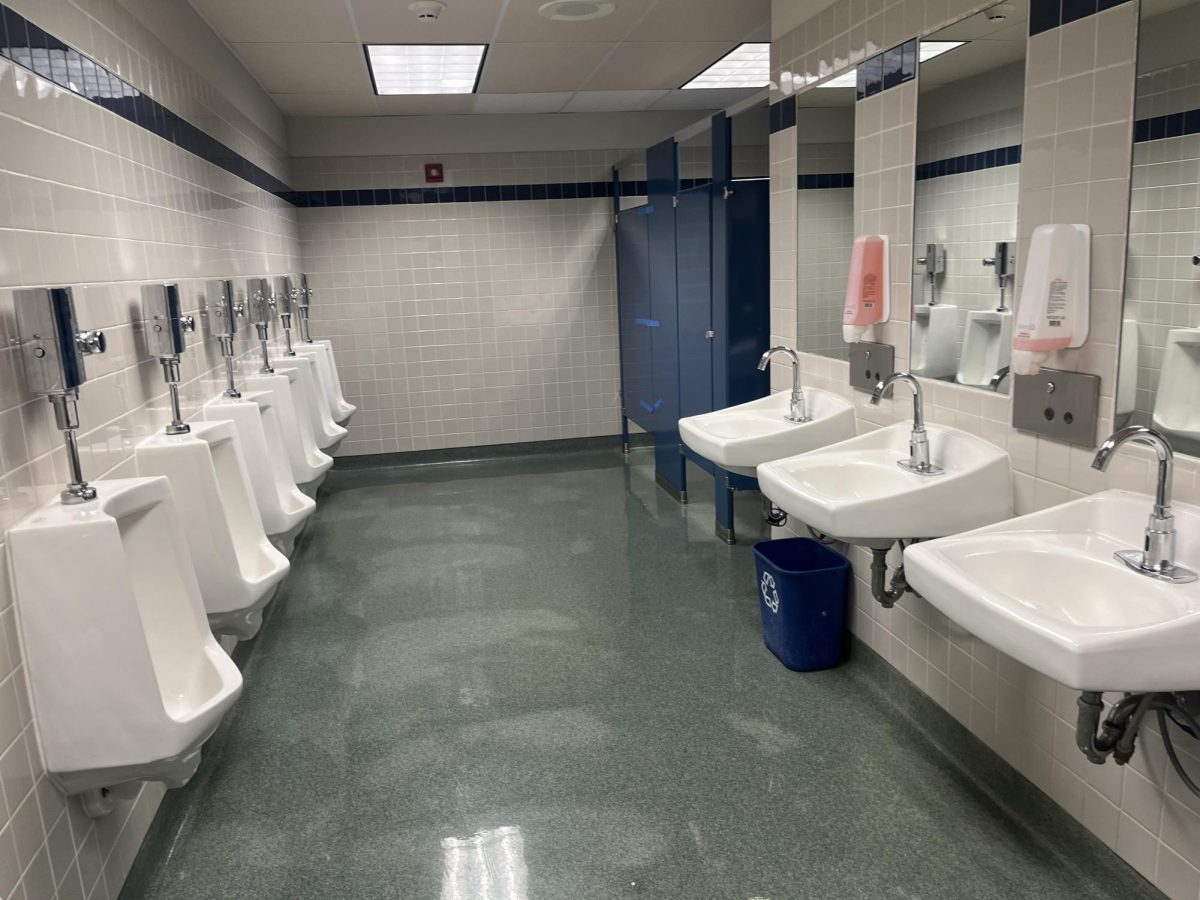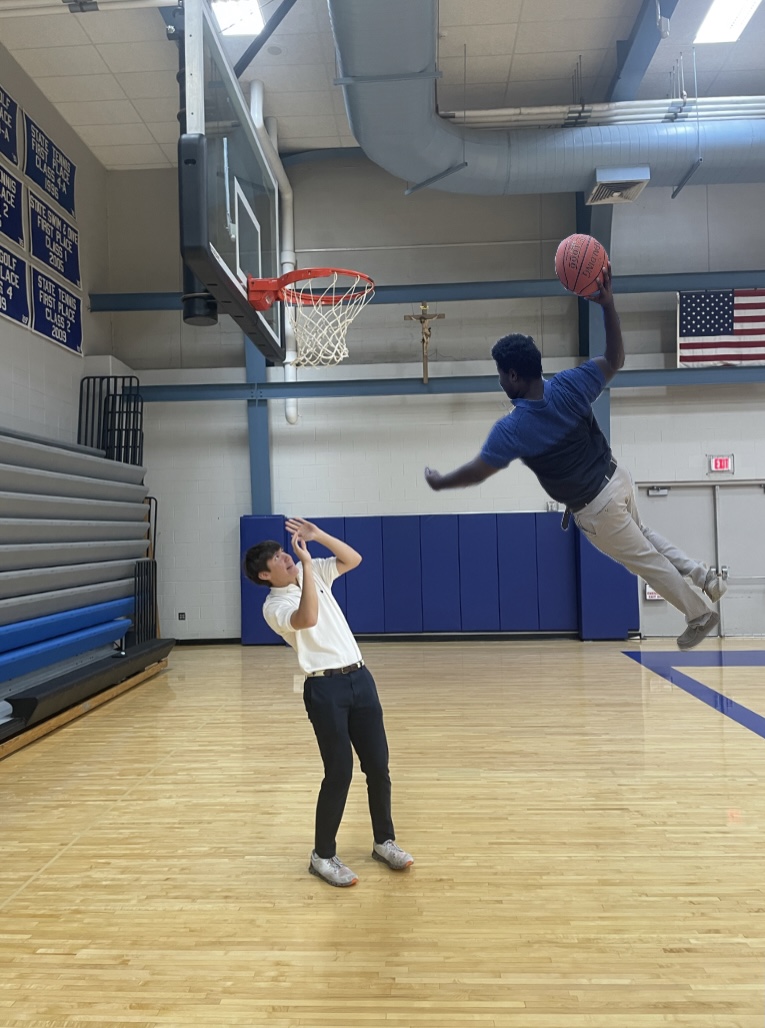When students returned to classrooms across Missouri this school year, most were met with a potentially new reality regarding their cellphones. A law passed by state lawmakers forced public schools to implement a written policy regarding cellphones. For many, that meant banning them entirely during school days.
As a private school, Rockhurst is not required to abide by this law, but it did prompt some conversations.
“It [the legislation] didn’t necessarily say we need to ban phones–you just need to have a policy in place. So, we were already within compliance with that,” Dean of Students Matt Darby said. “But it did bring up questions, because a lot of other school districts jumped to ‘We’re gonna ban them.'”
This law, Senate Bill 68, was signed by Gov. Mike Kehoe in July. It’s intended to limit distractions in the classroom, leading to students being more attentive, which–supporters hope–will increase grades and the overall classroom experience.
At Rockhurst, the parent/student handbook lays out a pretty strict stance on the devices:
“During the school day, students may only use cellphones during certain times and in certain places. Cellphones can only be accessed/used during Activity Period and lunch. Outside of lunch period and Activity Period, students are to turn off all sound from the phones and keep them out of sight, including during passing periods.”
Rockhurst had phone hangers with individual pockets for each student’s device long before this new law came to be. Many teachers, however, did not require students to use it. Many students kept their phones with them, usually in their backpack or pocket. Teachers didn’t allow the students to be on them during instructional time in class, but in situations where they had some level of freedom, you might often see students obscure use of their phones.
This year, administrators asked teachers to step up their enforcement of the use of the phone holders. Some teachers even take roll by checking phones in the hanger, which helps ensure students don’t try to keep their devices with them.
“A phone is just like any other tool, like a resource similar to a library or the Learning Commons,” math teacher Martin Radosevic said. “Using it in the proper context is good, but it definitely has to be managed because there are other forms of learning as well.”
The increased emphasis has forced students to change their ways.
“I am on my phone in class a lot less, but I use it when I have free time, which I enjoy,” senior Will Robertson said. But it’s pretty helpful to just know that my phone is put away so I can focus on class.”
Through communication with other private high schools in the Kansas City area, Rockhurst learned that some switched to a more hardline phone policy. St. James Academy in Lenexa, for instance, built specific lockers and require students to place their phones in one before their first class. They are not allowed to retrieve them until the end of the day.
Along with this, some public schools are completely banning phones, not even letting students bring them on campus.
“Everyone is kind of all over the board,” Darby said. “I mean, some schools are like us, right in the middle. Some schools are like ‘We don’t even mess with it. We don’t have rules.’ And then some schools are like ‘We don’t even let the students bring them into the school.'”
This may raise the question: Should Rockhurst be doing more? As a college preparatory school, the administration might view this situation differently from other schools. They know phones will be a big part of the students’ time at college and in the future, so instead of eliminating them entirely, the goal is to help teenagers learn how to be responsible with their devices.
“We want to give you guys [students] freedom,” Darby said. “We want to give you some guard rails and say ‘Stay within the lanes of these things,’ because at one point in your life, those guardrails are going to be removed.”
Students have had mixed reactions to this year’s increased enforcement, recognizing the benefits of having no phones in their classes and the effect that has on their learning.
“I didn’t know a lot about it at first, but it was pretty shocking for me, because it was different,” Robertson said. “But I think it’s helpful now.”
Administration says they don’t plan to change the phone policy, but are willing to adjust to what is best for the teachers and students.
“If you [students] are able to say, ‘Hey, you know what, I went throughout the day today and I had my phone the whole time, but I didn’t check it during class or I didn’t check it during mass or the assembly. Lunch and activity period, before and after school are when I checked it.’ I think that allows you guys to learn how to navigate life with technology at your fingertips, because it’s not going away,” Darby said.





